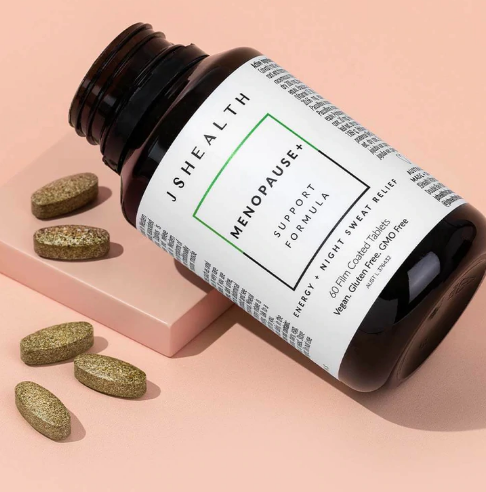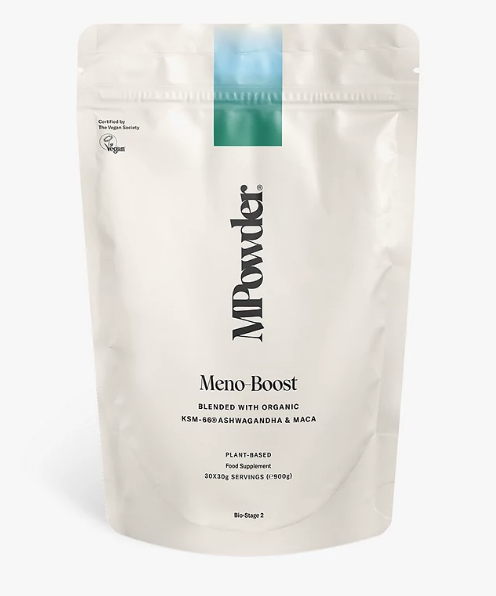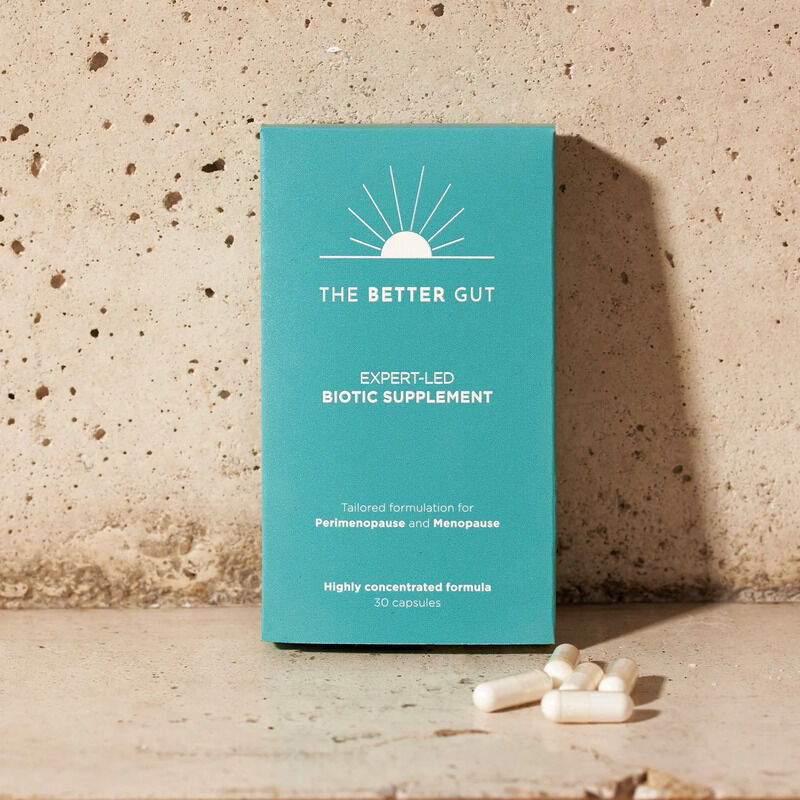The menopause is being mentioned a lot lately on social media, TV, radio and by celebrities. And that’s good but there are still many misconceptions about it.
For example, did you know that the symptoms manifest themselves years before we reach the menopause? Although the average age for women reaching the menopause in the UK is 51, symptoms appear in our 40s and, for some women, as early as their late 30s.
And this is why you need to start thinking about it: because symptoms present themselves well before reaching the menopause. The way we manage the symptoms and look after ourself during the time leading up to the menopause will determine the quality of our menopause and midlife experience.
So what do you need to know in order to have a positive and vibrant menopause?
Let’s start with the basics:
What is the menopause? It’s a natural process of ageing and another stage of a woman’s life. It’s defined as one year after your last period. In other words, the periods have stopped completely and you are no longer able to get pregnant naturally. The average age in the UK is 51. All women go through it regardless of whether you choose to have children or not. The time leading up to the menopause is called the perimenopause. During the perimenopause, we are still getting periods and this is when we begin to experience symptoms. Some women experience symptoms as early as their late 30s but most women experience them in their 40s.
Why it happens? As we age, the ability of the ovaries to produce hormones starts to decline. It’s this decline in the hormones oestrogen, progesterone and testosterone which causes symptoms well before periods stop altogether. Oestrogen is the hormone that makes us women and it governs every aspect of a woman’s body: from hair to skin to muscles, bones, gut, heart and brain health. It’s decline, which happens before periods stop, creates a number of physical symptoms.
What are the symptoms? There are more than 35 but the most common ones are hot flushes, night sweats, difficulty sleeping, brain fog, anxiety, low mood, weight gain, loss of libido and rage. You may experience some of these, all of these or none. Some symptoms will appear then disappear to appear later on. And we can develop new symptoms at any stage of our menopause journey. Perhaps you will experience some of the lesser-known ones such as vertigo, tinnitus, restless leg and burning mouth syndrome, to name a few. Bear in mind that not every woman experiences every symptom. Your menopause is as unique as you are, such that the symptoms you will experience and their severity will be specific to you.
Unfortunately, many of the symptoms of the menopause are similar to PMS (pre menstrual syndrome) which are hormonally based too. How can you tell the difference? Start tracking your menstrual cycle to become familiar with your cycle’s normal pattern. Take notice when it changes. Changes to your cycle and your periods are your body’s way of indicating that it’s going through the menopause. When you reach your 40s, if you notice that you are skipping your periods (and you are not pregnant) or the duration of your menstrual cycle changes from its normal pattern or your bleeds have become much heavier, then these are good indicators that you are approaching the menopause. However, always seek the advice of a medical professional to rule out the possibility of other health issues.
How to have a positive menopause journey
Experiencing all these physical and hormonal changes affects us emotionally and can feel overwhelming. Perimenopause and the menopause are transformational journeys. The transformation is outwardly visible – from sweating and seeing the face turn red due to hot flushes to gaining weight to thinning hair – so much so that it’s hard to recognise oneself. And the transformation is internal as well: there is a disconnection from the woman we are to the woman we are becoming.
But there is a lot we can do to journey through the perimenopause and menopause in a positive way:
1 – Reassess your lifestyle – This is a new stage of life and it requires us to reassess our lifestyle. Whether you take HRT or not, readjusting your lifestyle can help you manage your symptoms and the benefits extend far beyond the menopause to minimise diseases associated with old age.
The lifestyle of our 20s, 30s and 40s will not be suitable in our 50s and beyond because, as women, we have both the ageing process and the decline in hormones working against us. Our metabolism slows down, bones and muscles weaken and weight gain is a common symptom. In fact, all the systems of the body are being affected at the same time. Therefore, as we approach the menopause, we need a holistic approach- one that addresses all the systems of the body – and to be more proactive in our health. Let me start by saying that all aspects of our lifestyle: nutrition, exercise, sleep, stress management and selfcare are interconnected and they all impact our menopause journey. A holistic approach to our health is the best option and sits alongside HRT nicely.
So where to start? Let’s focus on the 3 most common symptoms: anxiety, weight gain, difficulty sleeping. Here’s what you can do now to minimize their effect:
Let’s start with alcohol. Be aware of how much you drink and limit your intake. As we age, we become less tolerant of alcohol in the sense that we can’t drink as much as we used to and it takes us longer to recover from a hangover. It is high in sugar which leads to weight gain and is responsible for a poor night’s sleep. Bear in mind that common symptoms of the menopause are weight gain and difficulty sleeping. The combination of menopause and alcohol is not a good mixer (sorry for the pun!).
Keep moving. Exercise is beneficial at every stage of life and, in particular, in preparation for the menopause for a number of reasons. The decline in oestrogen during this phase affects bone and muscle strength weakening them. Women reach peak bone mass at the age of 30. In order to stay strong and flexible as you age, you need to start now. Weak bones and muscles affect our physical health and our quality of life by limiting our movements and our ability to get out and about. Therefore, it is important to start the menopause journey with strong bones. Any exercise that is weight-bearing – whether that be body weight (as is the case in yoga and pilates), dumbbells or weights- will strengthen bones and build muscle mass. More muscle mass means that, even though the menopause slows down metabolism, we can still burn calories efficiently and prevent weight gain.
And exercise is beneficial for our mental health too. Anxiety, low mood and feelings of overwhelm are common during the menopause due to the decline in oestrogen. Exercise can help to counteract them.
Nutrition and supplements can act as natural alternatives to HRT and help to manage menopause symptoms too. Supplements, herbs and aromatherapy all have a part to play and can be symptom-specific. In general, these supplements, teas and oils can help:
- Oily fish lower our risk of heart disease and boost cognitive ability: both of which are negatively impacted by the menopause.
- Calcium in dairy products or leafy greens will boost the calcium in bones.
- Vit D is important for bone strength, to boost energy levels and low mood.
- Magnesium supports the nervous system to calm an anxious body and mind.
- Ashwaganda as a supplement or a tea is calming and before bed can improve sleep quality.
- Drink chamomile or valerian tea to feel calmer and have a better night’s sleep.
- Sage tea drunken cold can help with hot flushes and night sweats.
- Diffusing oils such as geranium or lavender are calming and facilitate sleep while sweet orange or rosemary are energising should you feel low in mood.
*Always check with a medical professional that these supplements are suitable for you and that they can work alongside any other medication you might be taking.*
2 – See your GP – If the physical symptoms prevent you from enjoying life, then see your GP who can prescribe HRT (Hormone Replacement Therapy). HRT will replenish the hormone oestrogen in the body which will ease the physical symptoms. Should you choose not to take HRT, you can manage your symptoms naturally.
3 – Mindset – Approaching the menopause with negativity towards ageing will affect your menopause symptoms and make them worse. Remember that you will be living a third of your life post-menopause so you need to find a way to get comfortable with it which leads to number 4…
4 – Yoga – The menopause is not just about your physical symptoms. It’s about getting a handle on the emotional aspect of it too. The decline in oestrogen affects the part of the brain that deals with memories. Events, people and places we have not thought about in years, now confront us and, in some cases, we have to come to terms with the life choices we have made this far. And it’s not just about you. It’s about navigating midlife and all the issues that go along with it: dealing with ageing parents, relationships, careers, children leaving home or lack thereof. Starting a yoga practice now will help you stay connected to your true self so that you can stay grounded and centred in the face of all this emotional upheaval. The poses and the breathing techniques can help to ease menopause symptoms. The yoga philosophy of acceptance can help us approach the menopause and ageing with a positive mindset allowing us to move forward confidently. Savasana and restorative yoga classes release tension from the body and quiet a busy mind.
Let’s face it: every woman has to go through the menopause. Let’s do so by being well informed so that we can make the best choices for ourselves and make our journey through a confident and vibrant one. Namaste.
words by Libby Stevenson
About Libby
As a fellow Hip List-er, Libby is a leading women’s yoga instructor and wellbeing expert with a degree in Bio-Medical Engineering (Bachelor of Science from New York Institute of Technology) & Therapeutic Wellbeing. She’s the Creative Director of Yoga & Wellbeing for Harley Street at Home.com – the first online wellness platform specifically for women over 40. If you’re interested to learn more about working with her head to The Hip List.


JSHealth Menopause+ is a specialized supplement formulated to support women during menopause by addressing common symptoms like hot flashes, mood changes, and hormonal imbalances. Packed with natural ingredients such as sage, dong quai, and vitamin D, it aims to promote hormonal balance, improve energy levels, and support bone health. JSHealth Menopause+ is designed to help women navigate the physical and emotional changes of menopause with ease.

MPowder Meno-Boost is a plant-based supplement designed to support women through the early stages of menopause. Formulated with a blend of natural ingredients like flaxseed, maca, and ashwagandha, it aims to alleviate common symptoms such as hot flashes, mood swings, and fatigue. MPowder Meno-Boost not only helps balance hormones but also provides essential nutrients to promote overall well-being and vitality, making it an ideal addition to a proactive menopause wellness routine.

‘The Better Gut’ stands out as the first probiotic supplement of its kind, meticulously crafted to address the unique needs of women during this transformative phase of life. This innovative supplement features a highly concentrated blend of six carefully selected bacterial strains, each backed by scientific research to deliver maximum benefits. Whether you’re in your late 30s, 40s, or beyond, ‘The Better Gut’ can support a balanced menopause transition.


